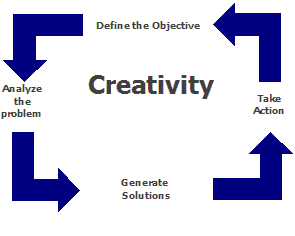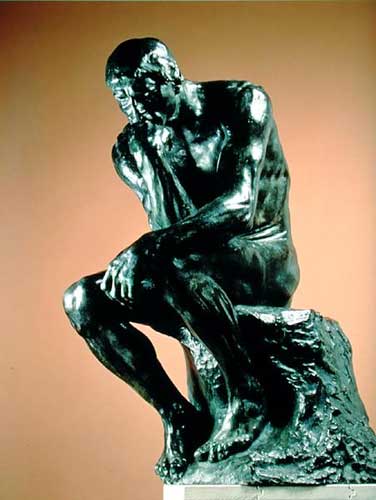 There is an e mail message written by an anonymous author that I have received several times over the last few years. The message is powerful and surely, many have received it. The title is The Difference. Nevertheless, it leaves unanswered a very important question.
There is an e mail message written by an anonymous author that I have received several times over the last few years. The message is powerful and surely, many have received it. The title is The Difference. Nevertheless, it leaves unanswered a very important question.
What to do with the information?
Each time I have read it, I have thought not only of the words but of the best way to take action with regards to each suggestion. Without action, words disappear in time.
The difference between wealthy and poor countries does not have to do with their age, natural resources, intelligence or ethnicity of the population. The difference has to do with the Attitude of the people. Attitude! Attitude is the difference that makes a tremendous difference!
Attitude is the exponential component of the formula I have created for success and confidence:
C=EPPA²
Success comes from Confidence which is a product of Experience, Preparation, Perseverance and an excellent Attitude².
Let’s take a look at ten interesting ideas to obtain and maintain a terrific Attitude² with action ideas for each.
Integrity:
Our integrity is the basis of our character. Integrity with ourselves and others. What do we do when no one is looking? Our integrity does not depend on what others think of us but rather about what our own internal voice tells us. While brushing our teeth each night we can look in the mirror and ask ourselves if we have lived that day with integrity in our actions.
Punctuality:
Being punctual is a habit which is formed by our experience. If our experience has taught us that everyone else will be late, we will tend to be late as well. Instead of trying to get someplace exactly on time, we can arrive ten minutes early for everything. When we get there, we will be calmer and better prepared. To take advantage of the time, we can develop the habit of taking something to read, such as a book or a magazine so we don’t “waste” our time while waiting for everyone else to show up.
Responsibility:
Being responsible to others highlights their importance in our lives. When we honor our word and our obligations we show everyone that they are significant. One of our greatest needs as human beings is to feel important. In order to be more responsible, we can maintain a list where we keep the promises and obligations we have assumed. Reviewing this list on a daily basis will emphasize the significance of our responsibilities.
Economy:
It is not easy to economize. Today’s world is based on mass consumption. Spending money today on the promise of tomorrow has become, in many instances, a badge of honor. Never in history have we had such a variety of goods and services at our disposal. To be certain, we should take advantage of modern advancements but only when all other basic necessities are satisfied.
Love of Work:
To love our work sounds spectacular and it would be wonderful if we all did exactly what we love doing! But what do we do when we are working somewhere which is something other than our “ideal” job? First, is to utilize the marvelous mind we all have to create a strategy to obtain our dream job, if we have not yet achieved it. Second, is to give significance to our job regardless of what it happens to be. When we give importance to our job and give it our best effort, new roads within the same area or in a totally different area will open.
Order and Cleanliness:
Order and cleanliness are often the first things we notice about an office, a house, a city or a country. When everything is orderly and clean, we suspect the people our proud of that particular place. As individuals, we can concentrate our efforts on our work place and homes as a starting point. It is difficult to change an entire society but easy to commence with our own surroundings. The seeds we plant today will grow and embellish our environment tomorrow.
Desire for improvement:
People do not age due to the passing years but rather for a lack of interest in life. While we are advancing, learning and growing, we remain young. All of the health and beauty products that are currently offered pale in comparison to the internal beauty that radiates from a person who is progressing towards a worthy objective. Reading, learning and studying are elements which assure we will always be young at heart.
Morality as a Basic Principle:
Morality is evident in all we do. It’s not a word to be heard only at church on Sundays. When we have to make a decision, it’s important to take a few seconds to ask ourselves, “Is what I am about to do true and correct? Could I tell my children what I am doing and feel proud?” The answers to these questions will help to keep us on the right road.
Respect for Law and Order:
Laws exist to maintain harmony within a society. When laws are respected by most, there is peace and tranquility. When laws are respected by few, hostility and anxiety reign supreme. In many cases we are taught that being tricky and sneaky, or “looking the other way” is acceptable behavior. Respecting not only the law but the spirit of the law allows us to be an integral part of society and not to isolate ourselves from it.
Respect for the Rights of Others:
We live with our own thoughts 24 hours a day. It’s natural to think of our own well being as well as those we love. When this idyllic state, however, infringes on the rights of others, there is internal and external conflict. The age old advice of treating others the way we would like them to treat us is the most effective procedure to respect the rights of others.
Abiding by each of these values is no easy task. To be sure, there will detours and challenges along the way. If, however, we adhere to these principles and take appropriate action, we will have a terrific Attitude² which will lead us to achieve more confidence and success in all that we do.
Committing to an objective, establishing a plan and taking action is the start of an adventure that can take us to whatever destination we desire.
∞ Rob McBride ∞
LL I 8


 Often it is an exercise which we perform mentally during the holidays. We have the best intentions and when we are creating our ideal year, it sounds easy and we are excited about the prospects of the coming year. We return to work and start back on our routine and, in many cases, it’s like waking up after a night of too much eating and drinking.
Often it is an exercise which we perform mentally during the holidays. We have the best intentions and when we are creating our ideal year, it sounds easy and we are excited about the prospects of the coming year. We return to work and start back on our routine and, in many cases, it’s like waking up after a night of too much eating and drinking.  The “hangover” that we wake up to is accompanied by work that has accumulated during time off. We think, “This is crazy! What was I thinking about when I made these new resolutions and goals?” If we don’t accompany our goals and objectives with action, it is likely that the wonderful thoughts we have will become nothing more or less than an unaccomplished dream.
The “hangover” that we wake up to is accompanied by work that has accumulated during time off. We think, “This is crazy! What was I thinking about when I made these new resolutions and goals?” If we don’t accompany our goals and objectives with action, it is likely that the wonderful thoughts we have will become nothing more or less than an unaccomplished dream.

 Our ability to be creative can make a tremendous difference in our lives. Many years ago, Earl Nightingale suggested the opposite of courage is not cowardliness but rather conformity. The road taking us away from cowardliness is the road less traveled, the same one where we must be creative because it is usually laden with uncertainty and the unknown. While most of us know that creativity can set us apart from the masses, it can be elusive and difficult to ascertain.
Our ability to be creative can make a tremendous difference in our lives. Many years ago, Earl Nightingale suggested the opposite of courage is not cowardliness but rather conformity. The road taking us away from cowardliness is the road less traveled, the same one where we must be creative because it is usually laden with uncertainty and the unknown. While most of us know that creativity can set us apart from the masses, it can be elusive and difficult to ascertain.
 A man’s life is what his thoughts make of it.
A man’s life is what his thoughts make of it.

 Attitude is squared in our formula because it is the most important element. For better and for worse, our attitude is an exponential factor in our confidence. When we have an excellent attitude, we are able to achieve our objectives often times in spite of lacking Experience, Preparation or Perseverance. Numbers greater than one represent positive attitudes (10² is 100). On the other hand, if we have a terrible attitude, it is very difficult to achieve our objectives even if we possess the other three attributes. Numbers less than one represent negative attitudes (0.1² is 0.01). Attitude² works on the upside and the downside!
Attitude is squared in our formula because it is the most important element. For better and for worse, our attitude is an exponential factor in our confidence. When we have an excellent attitude, we are able to achieve our objectives often times in spite of lacking Experience, Preparation or Perseverance. Numbers greater than one represent positive attitudes (10² is 100). On the other hand, if we have a terrible attitude, it is very difficult to achieve our objectives even if we possess the other three attributes. Numbers less than one represent negative attitudes (0.1² is 0.01). Attitude² works on the upside and the downside! As human beings we tend to gravitate towards those who make us feel better. People who make us feel better normally have a better attitude towards us and towards life. Sometimes we like to be with those who are negative, particularly if we are also in a negative frame of mind. Misery loves company. Together a lot of negative people can have a wonderful pity party. Normally speaking, however, we prefer to be in the company of those who have good attitudes.
As human beings we tend to gravitate towards those who make us feel better. People who make us feel better normally have a better attitude towards us and towards life. Sometimes we like to be with those who are negative, particularly if we are also in a negative frame of mind. Misery loves company. Together a lot of negative people can have a wonderful pity party. Normally speaking, however, we prefer to be in the company of those who have good attitudes. It’s very important to understand that our attitudes come from our thoughts. Over 100 years ago William James said:
It’s very important to understand that our attitudes come from our thoughts. Over 100 years ago William James said: Perseverance allows us to achieve our dreams and increases our confidence. In previous editions of the “Lunar Letter” we have talked about and referred to the formula:
Perseverance allows us to achieve our dreams and increases our confidence. In previous editions of the “Lunar Letter” we have talked about and referred to the formula: Many know the story of the Chinese Bamboo. The bamboo seed is planted, watered and cared for during one year and nothing can be seen. There is no sign of life. The seed is watered and cared for during an additional year and still nothing. The years pass and one wonders what is going on. Somewhere around the fifth year the Chinese Bamboo tree sprouts and then grows 90 feet in 6 weeks.
Many know the story of the Chinese Bamboo. The bamboo seed is planted, watered and cared for during one year and nothing can be seen. There is no sign of life. The seed is watered and cared for during an additional year and still nothing. The years pass and one wonders what is going on. Somewhere around the fifth year the Chinese Bamboo tree sprouts and then grows 90 feet in 6 weeks. “Continuous effort – not strength or intelligence – is the key to unlocking our potential.”
“Continuous effort – not strength or intelligence – is the key to unlocking our potential.” I was awaiting a call to set an appointment for an important meeting. The call came through and the person asked if I had time to talk right then. I was anxious to talk to the person, so I said, “Sure!” The truth of the matter was that I was in the middle of another project and getting ready to leave for another appointment.
I was awaiting a call to set an appointment for an important meeting. The call came through and the person asked if I had time to talk right then. I was anxious to talk to the person, so I said, “Sure!” The truth of the matter was that I was in the middle of another project and getting ready to leave for another appointment. I said, “Hang on just a minute.” I rushed downstairs, found a pen, paper and some notes I had written. I then ran back upstairs to the phone. When I got back on the line, I was out of breath. Perhaps 38 seconds had passed. Not an incredibly long time on a clock but an eternity when you are waiting for someone on the phone.
I said, “Hang on just a minute.” I rushed downstairs, found a pen, paper and some notes I had written. I then ran back upstairs to the phone. When I got back on the line, I was out of breath. Perhaps 38 seconds had passed. Not an incredibly long time on a clock but an eternity when you are waiting for someone on the phone.
 One week later on the follow up call, I received a polite e mail saying, “I spoke to our training people in New York. They want to review other programs in addition to yours so let’s put it on hold for a few weeks.” The final blow hit its mark relentlessly.
One week later on the follow up call, I received a polite e mail saying, “I spoke to our training people in New York. They want to review other programs in addition to yours so let’s put it on hold for a few weeks.” The final blow hit its mark relentlessly.
 The amount of experience we have or don’t have isn’t nearly as important as our ability to take action. We will fail from time to time, but the more we try and fail, the more successful we will become. Many of us know the story of Thomas Edison and all of us benefit from his inventions. After more than 2,000 attempts at making a light bulb, he finally succeeded. A reporter asked him, “How does it feel to have failed over 2,000 times?” Edison replied that he had simply learned 2,000 ways how Not to make a light bulb. Experience is important but not nearly as important as what we learn from our mistakes that we often make in gaining experience.
The amount of experience we have or don’t have isn’t nearly as important as our ability to take action. We will fail from time to time, but the more we try and fail, the more successful we will become. Many of us know the story of Thomas Edison and all of us benefit from his inventions. After more than 2,000 attempts at making a light bulb, he finally succeeded. A reporter asked him, “How does it feel to have failed over 2,000 times?” Edison replied that he had simply learned 2,000 ways how Not to make a light bulb. Experience is important but not nearly as important as what we learn from our mistakes that we often make in gaining experience. Think for a moment of the first time that we are attracted to someone who rocks our world and makes our knees weak. The question arises, “How can I approach the person to find out if they will go out with me?” We tell our friends of our new found love and they tell us, “Go ahead, what are you waiting for?” In some cases, despite the suggestions and ribbing we get from our friends, we do nothing. We think of the possible rejection and “chicken out.” In other cases we take action and put our best foot forward. Sometimes we are successful and sometimes we crash and burn. Nevertheless, by taking chances and taking action, we gain experience and confidence. The result is of this experience is quite evident. The successes far out weigh the failures and as a result there has been a population explosion on planet earth!
Think for a moment of the first time that we are attracted to someone who rocks our world and makes our knees weak. The question arises, “How can I approach the person to find out if they will go out with me?” We tell our friends of our new found love and they tell us, “Go ahead, what are you waiting for?” In some cases, despite the suggestions and ribbing we get from our friends, we do nothing. We think of the possible rejection and “chicken out.” In other cases we take action and put our best foot forward. Sometimes we are successful and sometimes we crash and burn. Nevertheless, by taking chances and taking action, we gain experience and confidence. The result is of this experience is quite evident. The successes far out weigh the failures and as a result there has been a population explosion on planet earth! The road to success has been studied for thousands of years.
The road to success has been studied for thousands of years.